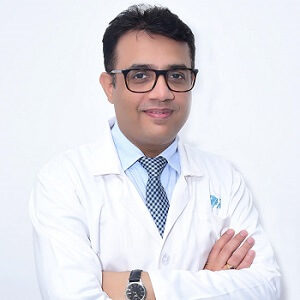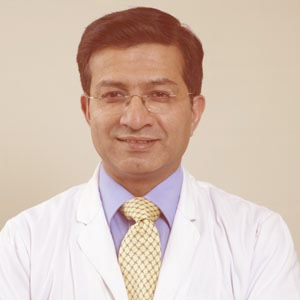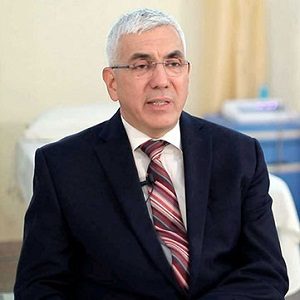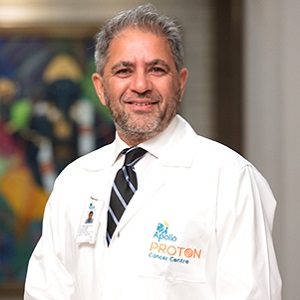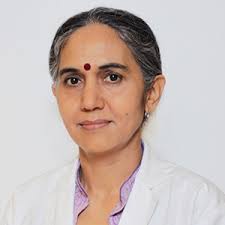Best Doctors in India for Alcoholic Hepatitis Treatment
- Pediatric Hemato-oncologist, Hematologist, New Delhi, India
- Over 17 years’ experience
Profile Highlights:
- Dr. Gaurav Kharya is one of India’s top pediatric hematologists. He has over 17 years of expertise and is affiliated with Indraprastha Apollo Hospital.
- Dr. Kharya specializes in pediatric hemato-oncology, immunology, and bone marrow transplantation. He has extensive expertise in transplanting in children with benign or malignant blood abnormalities, immunological disorders, and other conditions both nationally and internationally.
- Dr. Kharya performed around 600 bone marrow transplants with his team. He undertook the first haploidentical bone marrow transplant for sickle cell disease in India. He also depleted TCR alpha beta CD 19 in invitro by haploidentical BMT in a 4-month-old baby with severe combined immunodeficiency.
- Neurosurgeon, New Delhi, India
- Over 20 years’ experience
Profile Highlights:
- Dr. Bipin Walia is one of the most famous neurosurgeons who has performed over 7000 successful neurosurgeries so far.
- He earned his MBBS and MS (General Surgery) degree from Armed Forces Medical College, Pune, followed by which his, M.Ch(Neurosurgery) from All India Institute of Medical Sciences, New Delhi.
- Dr. Bipin Walia has over 20 years of experience with his outstanding performance earning him quite some rewards and recognition.
- Neurologist, New Delhi, India
- Over 15 years’ experience
Profile Highlights:
- Dr. Puneet Agarwal is one of the renowned neurologists in India known for his outstanding performance in the field of neuroscience.
- He is considered to be one of the first few doctors to successfully complete the Inflammatory Genes study in stroke patients and IV Valproate in status epilepticus.
- Dr. Agarwal is highly experienced in the Management of Parkinson’s disease, Deep Brain Stimulation, and Injection of Botulinum Toxin and is currently functioning as the Director of the Neurology Department of Stroke.
- Surgical Oncologist, New Delhi, India
- Over 32 years’ experience
Profile Highlights:
- Dr. Shefali Agrawal is one of the best surgical oncologists in India, with more than 32 years of experience in the field.
- Dr. Agrawal is practicing as a Senior Consultant Surgical Oncologist at Indraprastha Apollo Hospital, New Delhi.
- The doctor took several certified training in surgical oncology in the USA.
- Dr. Agarwal specializes in Hepato-Pancreato-Biliary Cancer. She also finds her interest in Medical Oncology, management of Cervical Cancer, Phyaryngeal Cancer, Brain Cancer, Bone Cancer, Colo-rectal Cancer, Ovarian Cancer, Bladder Cancer, and Fallopian Tube Cancer.
- Dr. Agarwal has published several articles and papers in esteemed national and international journals.
- General & Laparoscopic Surgeon, New Delhi, India
- Over 24 years’ experience
Profile Highlights:
- Dr. Saket Goel is one of the best Gastroenterologists in India providing healthcare facilities to patients for the last 24 years. He is connected with Indraprastha Apollo Hospitals.
- Dr. Goel keeps up with the latest surgical trends to serve better. He specializes in minimal access surgery, bariatric surgery, colorectal surgery, and laparoscopic surgery.
- In addition to proficiency in a wide range of regular and emergency surgeries, Dr. Goel works to create awareness for colorectal cancer and also has penned many papers and articles in reputed national and international journals. He offers surgical training to postgraduates, interns, undergraduates, nursing students, etc.
- Paediatric Hematologist, Chennai, India
- Over 24 years’ experience
Profile Highlights:
- As a hematologist, Dr. Revathi Raj has been practicing successfully for over 24 years.
- She provides treatments for thalassemia, eosinophilia, male and female health screening, and biochemistry.
- Dr. Revathi is a member of the Indian Medical Association (IMA).
- Neurologist, New Delhi, India
- over 27 years experience
Profile Highlights:
- Dr. Mukul Varma is one of the best Neurologists in India, specialized in treating brain and spine disorders. With over 27 years of experience, the doctor has expertise in Parkinson’s disease, Speech and movement disorder, headache, and multiple sclerosis treatment.
- He is working as a senior consultant Neurologist with the prestigious Apollo Hospital, New Delhi.
- Dr. Varma is excellent at diagnosing and providing holistic treatment for meningitis, brain stroke, epilepsy, brain cancer, and many others. The doctor also performs stereotactic procedures for Brachial Plexus injuries.
- He has contributed 20 literary works to medical journals of national and international repute.
- Radiation Oncologist, Chennai, India
- Over 20 years’ experience
Profile Highlights:
- Dr. Rakesh Jalali has been one of the top Radiation Oncologists in the country due to his utter dedication to Cancer Research and Education.
- He has been awarded the Oncologist Award by Medscape in 2014 and also received the top radiation oncologist award for consecutive 3 years from 2014 onwards.
- Over the years of his career, he has conducted path-breaking research to enhance the quality of cancer treatment.
- Eye Surgeon, Ophthalmologist, New Delhi, India
- Over 20 years’ experience
Profile Highlights:
- Dr. Amanjot Singh has been practicing medicine for 20 years. Her specialization lies in cataract surgery by phacoemulsification and LASIK. She has been conducting training in Phacoemulsification at SGHS hospital in Sohana and at Centre for Sight, New Delhi prior to joining Max Healthcare.
- She has multiple specializations including refractive surgery, corneal surgery, eye muscle surgery, oculoplastic surgery, etc. Dr. Amanjot is a member of the Delhi Ophthalmic Society and the Bombay Ophthalmic Society.
- Liver Transplant Surgeon & HPB Surgeon, Gurugram, India
- Over 15 years’ experience
Profile Highlights:
- Dr. Giriraj Singh Bora is a liver transplant surgeon, who is known for being the founder member of the Liver Transplant Society of India.
- He is the first doctor to transplant a liver in Rajasthan. He is also known for carrying out the first deceased donor and the first living donor liver transplants in Rajasthan and has also been instrumental in starting a liver transplant program in the region.
Best Hospitals in India for Alcoholic Hepatitis Treatment
ALCOHOLIC HEPATITIS
Alcoholic hepatitis is a liver infection, which is mainly caused by frequent, heavy use of alcohol. Fat can build up in the liver cells, which might lead to inflammation as well as scarring of the liver.
Alcoholic hepatitis might be mild or severe. A patient might even need a liver transplant if proper treatment is not provided, or if they don’t stop consumption of alcohol.
It is also notable that all heavy drinkers don’t develop this condition, and sometimes this condition even develops in people who drink moderately. However, if you are diagnosed with this condition, it is important for you to quit drinking alcohol. People who continue drinking alcohol might face a huge risk of serious liver damage as well as death.
Symptoms
Depending on the amount of damage to the liver, the symptoms can vary. If you are having a mild form of the disease, you might not even experience any symptoms at all. However, as the damage continues to grow, you might experience the following:
- Changes in appetite
- Dry mouth
- Weight loss
- Pain or swelling in the abdomen
- Jaundice, or yellowing of the skin or eyes
- Fever
- Nausea and vomiting
- Easy bleeding or bruising
- Changes in your mental state, including confusion
- Fatigue
The symptoms of this condition are similar to those caused by a few other health conditions. Therefore, if you develop any of these symptoms, it is best to get a proper diagnosis as well as begin treatment.
Causes & risk factors
Alcoholic hepatitis generally develops when the alcohol you drink causes damage to your liver. However, it is not clear why alcohol does this damages only to some heavy drinkers.
Few factors that are known to play a role in this condition include:
- The body’s process that breaks down alcohol produces some toxic chemicals
- These chemicals can trigger inflammation that can destroy the liver cells
- Thus, over time, scars replace healthy liver tissue, thus interfering with the function of the liver
- This irreversible scarring, which is also termed cirrhosis, is the final stage of alcoholic liver disease
If you have hepatitis C and continue to drink, even moderately, you are more likely to develop cirrhosis.
Some heavy drinkers are also malnourished because they don’t eat a proper balanced diet. Alcohol and its byproducts also prevent the body from absorbing nutrition properly. Lack of nutrition can contribute to liver cell damage.
Some other risk factors that can lead to this condition include:
- Your sex- Women are usually at a higher risk of developing alcoholic hepatitis since the way alcohol is processed in women is different.
- Binge drinking- Having over five drinks within two hours for men and four or more for women can increase the risk of alcoholic hepatitis.
- Obesity- Heavy drinkers who are overweight are also more likely to develop alcoholic hepatitis and to progress from that condition to cirrhosis.
- Race and ethnicity- Hispanic and Negroid people might be at higher risk of alcoholic hepatitis.
- Genetic factors- According to studies, there may be a genetic component in alcohol-induced liver disease. However, it is difficult to separate genetic and environmental factors.
Diagnosis
If you are showing symptoms of alcoholic hepatitis, your doctor will first inquire about your medical history and alcohol consumption. Next, he/she will perform a physical exam to see if you have an enlarged liver or spleen. They might also need a few more tests to confirm your diagnosis, such as:
- Complete blood count (CBC)
- Liver function test
- Ultrasound of the liver
- Abdominal CT scan
- Blood clotting tests
In some cases, a liver biopsy might also be needed to confirm the diagnosis of alcoholic hepatitis. A liver biopsy requires your doctor to remove a tissue sample from your liver, which is then tested in the lab. This method helps to show the severity and type of liver disease.
Treatment
Stopping alcohol consumption is the most important treatment for alcoholic hepatitis. There is no cure for this condition, but treatment can help in reducing or eliminating symptoms, or stopping its progression.
It is also important to note that scarring of the liver is permanent, but treatment can aim to restore as much function as possible.
Dietary changes
Medication
Liver transplant
The best hope of recovery is to be aware of the signs and symptoms as well as to reduce, manage, or if possible, completely stop consumption of alcohol.
Complications
Alcoholic hepatitis might lead to severe other complications such as:
- Enlarged veins (varices)- In this condition, blood that is unable to flow freely through the portal vein, can back up into other blood vessels in your esophagus or stomach.
- Hepatic encephalopathy- This condition can be caused by the buildup of toxins if your damaged liver is unable to remove all the toxins from your body. It involves confusion, drowsiness, and slurred speech.
- Ascites- Ascites is a condition in which the fluid that accumulates in the abdomen may get infected and thus, require treatment with antibiotics. Although this condition is not life-threatening, it can be a sign of advanced alcoholic hepatitis, or cirrhosis.
- Kidney failure- A damaged liver affects blood flow to the kidneys, thus resulting in kidney failure.
- Cirrhosis- The scarring of the liver might lead to liver failure.
Prevention
Alcoholic hepatitis might be prevented if you take the following steps:
- Drink alcohol in moderation, if at all- For healthy adults, moderate drinking means no more than one drink a day for women of all ages and men older than 65, and not over two drinks a day for men aged 65 and younger. However, if you prevent all alcohol, it is a certain way to prevent this condition.
- Check before mixing medications and alcohol- Ask your doctor if it’s safe to drink alcohol while you are taking medications. Consider reading the warning labels on over-the-counter medications as well. Don’t drink alcohol when you are taking medications that warn of complications when combined with alcohol.
- Protect yourself from hepatitis C- Hepatitis C is an infectious liver disease that is caused by a virus. If it is left untreated, it may lead to cirrhosis. If you are having hepatitis C and you consume alcohol, you’re generally more likely to develop cirrhosis than if you don’t drink.

